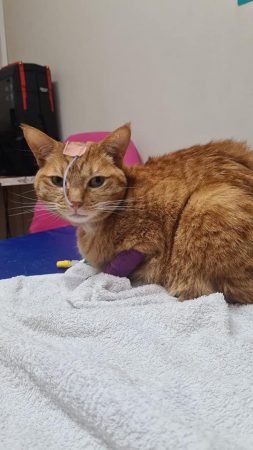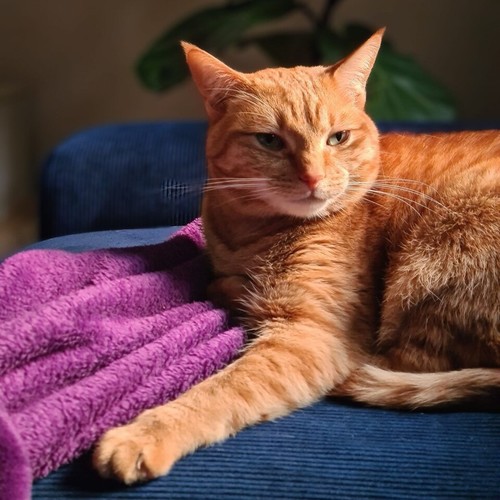A Cape Town family is mourning the loss of their cat, Pi, who passed away after coming into contact with lilies. Lilies, readily available for purchase at most grocery outlets, are extremely toxic to cats.
The entire plant, from stem to pollen particles, is deadly to felines. Eating just a small amount of a leaf or flower petal, licking a few pollen grains while grooming, or drinking the water from the vase can cause your cat to develop fatal kidney failure in less than three days.
This is what happened to Pi. Speaking to her owner, Kayli shared Pi’s journey with the hope that incidents like this are avoided in other households.

Kayli
Pi was in the hospital for two weeks. She couldn’t eat or drink. She vomited for days on end. She needed dialysis and a feeding tube. She lost one-third of her body weight.
Then she seemed to be recovering. Veterinarians started calling her Miracle Cat.
Two months later, Pi was back in the hospital because her kidneys simply couldn’t cope.
On 1 February, Pi passed away. Kayli wrote:
“Unfortunately our precious girl passed away. Thank you all for the love you have sent us. We are going to do everything we can to make sure other people know how dangerous lilies and other plants are.”
Kayli has made a mission of getting retailers to do better. Currently, lilies and other toxic plants are sold without any clear warning or appropriate labelling. She approached Woolworths, Pick ‘n Pay, Checkers, Spar and NetFlorist with a message:
“I don’t want your money or products. I come to you pleading for a simple change that could save lives. A change so simple that it just needs to be retyped.”
“Your labels need to be better.”
“Some of you have labels with no warnings. Some of you have labels that say ‘keep away from pets’. It’s not enough.”
Kayli proposed something bolder and more direct: “WARNING: HIGHLY TOXIC TO CATS AND DOGS.”
Woolworths, Pick ‘n Pay, Checkers and NetFlorist responded to Kayli’s proposal. They’re on board and will all be updating their labels. The new labels will take some time to roll out, but the commitment has been made to make the change, both online and in-store. Warnings have already been added to Woolies’ online store.
“The fact that our sweet girl didn’t suffer in vain and that our loss might save other lives, has put a small bandage on my heart,” Kayli added.
Other common household items that are toxic to pets include (but are not limited to): onions, garlic and chives; grapes and raisins; xylitol; chocolate; coffee. More obvious toxins include detergents and medication.
Written by Robyn Simpson.
ALSO SEE:
Feature Image: Supplied

